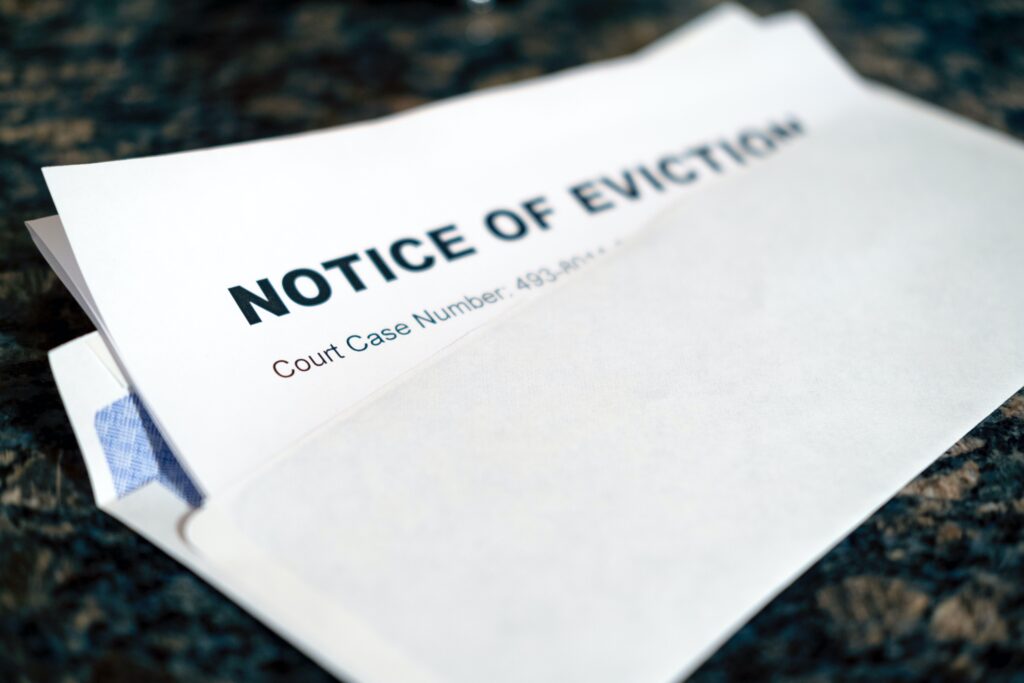Estate agents have specific legal obligations when it comes to sharing property information with buyers. From Japanese knotweed to noisy neighbours, past subsidence to pending planning applications, having a clear understanding about what agents should tell you helps protect your interests. Here’s what they’re legally required to disclose, and what to ask if they haven’t.
Legal framework governing estate agents in the UK
The property market runs on two key pieces of legislation: the Consumer Protection from Unfair Trading Regulations 2008 and the Estate Agents Act 1979. These laws stop agents from hiding important details about properties or misleading potential buyers. But many house hunters don’t know their rights under these rules.
Consumer Protection from Unfair Trading Regulations 2008
These regulations make it illegal for estate agents to hide or misrepresent vital property information. Agents must disclose anything that could affect a buyer’s decision, from structural issues to noisy neighbours. Breaking these rules counts as a “misleading omission” and can lead to prosecution, heavy fines and even professional sanctions.
Estate Agents Act 1979
This law sets the basic rules for how estate agents must operate. It requires agents to declare any personal interest in a property sale, provide clear information about fees and costs, and join an approved redress scheme. The Act gives trading standards officers power to ban dishonest agents from practising.
What is “material information” and why does it matter?
Material information covers anything that might change your mind about buying a property. A good example is non-standard construction—some houses built with precast reinforced concrete need a PRC certificate before you can get a mortgage. Without one, you’re looking at cash buyers only.
Japanese knotweed falls into this category too. While its presence doesn’t automatically rule out a mortgage, you’ll need proof of an ongoing treatment plan from a qualified specialist. Agents must tell you if they know about these issues, and keeping quiet isn’t an option.
Essential disclosures under Unfair Trading Regulations 2008
Estate agents face strict rules about what they must tell buyers. The law splits these obligations into five key areas.
Material information
Material information is facts that could sway your decision to buy. This covers everything from the property’s condition to its title. An agent hiding details about subsidence history or boundary disputes breaks the law through “misleading omission.”
Property descriptions
Property descriptions must be accurate in every detail. Measurements need checking, features must exist and condition reports can’t gloss over problems. Even verbal statements count. For instance, agents can’t claim a house is “fully renovated” if only the kitchen’s new.
Missing information
The regulations take a tough stance on missing information. Agents can’t stay quiet about planned developments nearby, growing crime rates or that noisy pub around the corner. Presenting facts unclearly or burying them in small print counts as misleading too.
Verifiable information
Estate agents must share anything they know—or should know—about a property. They can’t skip basic checks then claim ignorance. If information is publicly available or obvious during a viewing, they’re expected to know it.
Commercial intent
Agents must be upfront about their commercial position. Hidden fees, undisclosed relationships with mortgage brokers or secret commissions all break these rules. The law demands complete transparency about who’s making money from your purchase.
Essential disclosures under Estate Agents Act 1979
Money talks in property sales, which is why the Estate Agents Act 1979 zeros in on financial transparency. Estate agents can’t withhold information if they’re personally involved in a sale. Related to the seller? They have to tell you. Getting a bonus from referring you to a mortgage broker? That needs declaring too.
The same goes for hidden costs. Agents must spell out every penny you’ll need to pay, right from the start. That reservation fee you didn’t know about? Or those pre-contract deposits? They should mention these before you get your hopes up about a property.
Every estate agent needs membership in an approved complaints scheme—it’s not optional. So if things go wrong, you’ve got somewhere to turn. The Property Ombudsman and Property Redress Scheme are the main ones. Ask which scheme your agent belongs to. If they avoid the question or claim they don’t need membership, find another agent.
Red flags to watch out for
Watch out for agents who sidestep questions about a property’s history or condition. If they’re pushing for quick decisions without giving you time to think, something’s off. Vague answers about key details or reluctance to put information in writing should set alarm bells ringing.
Some agents try discouraging surveys, claiming they’re unnecessary. This usually means they’re worried about what a surveyor might find. Remember that good agents welcome independent checks as they protect everyone involved.
Consequences of non-compliance
Breaking disclosure rules carries serious penalties. Agents face heavy fines and possible legal action from buyers. Courts can invalidate contracts if crucial information was withheld. Beyond immediate penalties, agents risk losing their licence and professional reputation. It can be career-ending in a business that’s built on trust.
Can an estate agent plead ignorance?
The law’s crystal clear here, meaning agents can’t hide behind claims of ignorance. They’re responsible for knowing key facts about properties they sell. If information is readily available, they should know it. This stops the “I didn’t know” defence dead in its tracks.
Take non-standard construction. Every property has an Energy Performance Certificate showing its build type. If an agent hasn’t checked this basic document, they’re failing in their duties. The same applies to planning permissions, flood risks, and other public information.
How to ensure you’re getting all necessary information
Knowledge is power when house hunting. Start by hiring a conveyancer before making offers, as they’ll identify issues early. Commission a full building survey rather than relying on mortgage valuations. These might seem expensive, but they’re cheaper than discovering problems after purchase.
Get everything in writing. Verbal assurances count for little if disputes arise later. Research the area yourself and check local planning applications, crime statistics and flood maps. Armed with this knowledge, you’ll know what questions to ask agents.
Most importantly, trust your instincts. If an agent seems evasive or pressured, there’s usually a reason. Good agents welcome informed buyers—they know transparency makes sales smoother and reduces the risk of deals falling through.
How to sell a house without an estate agent
Need to sell your house quickly without estate agent fees? Property Rescue offers a fast, hassle-free alternative. We buy properties directly for cash, often completing sales within days. There’s no need for repairs or renovations, as we purchase houses in any condition.
Unlike traditional estate agents, we cover all legal fees and maintain complete confidentiality throughout. No ‘For Sale’ boards, no public viewings, just discrete, professional service. We’re regulated by the Financial Conduct Authority, members of The Property Ombudsmen, and follow strict OFT Guidelines.
See how much your property is worth and get a free, no-obligation quote.
A fully transparent estate agent
While agents must disclose certain information, you’re ultimately responsible for checking if a property suits your needs. Use their obligations as a starting point, not the finish line, in your research. That way, you’ll move into your new home confident you’ve made the right choice.








